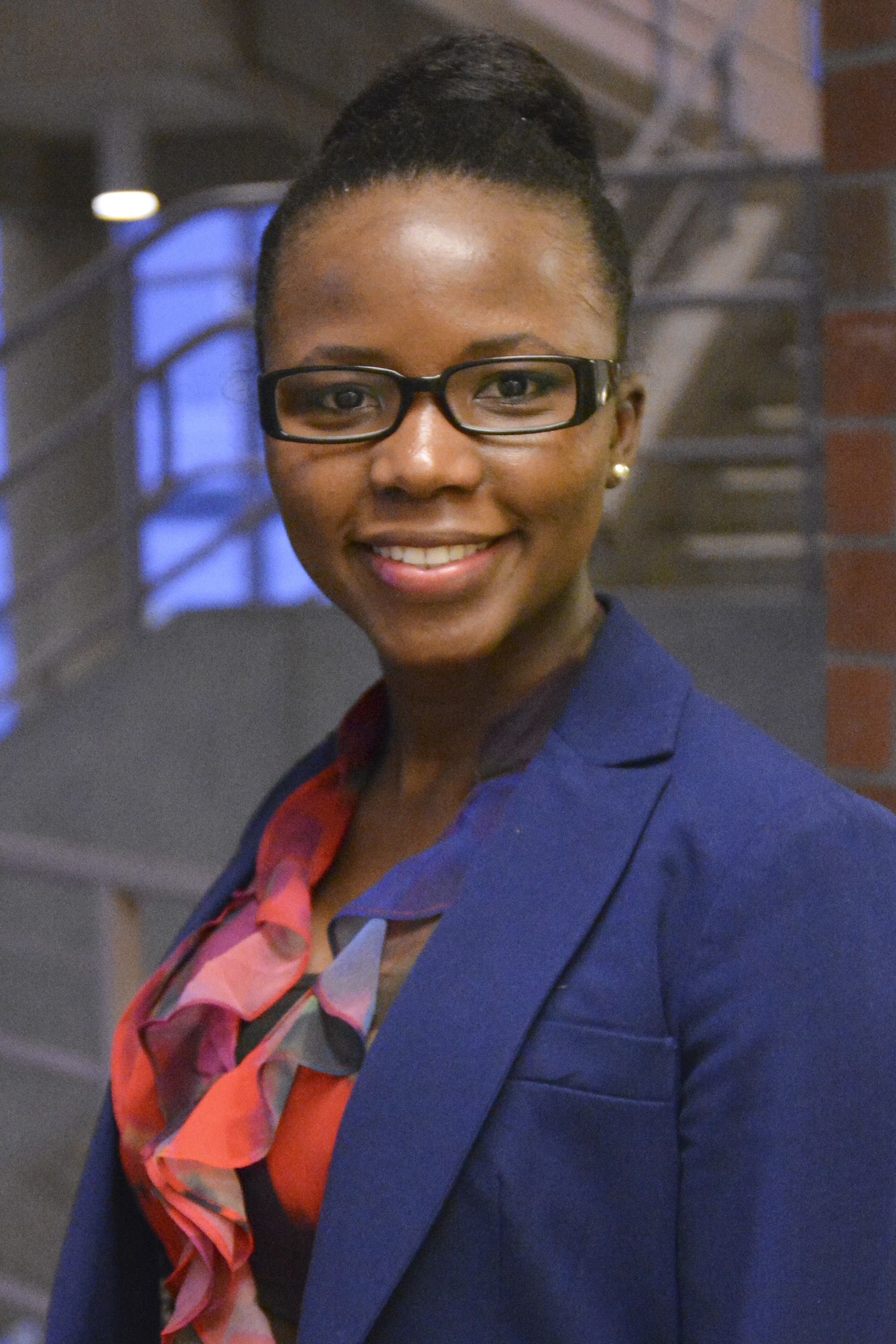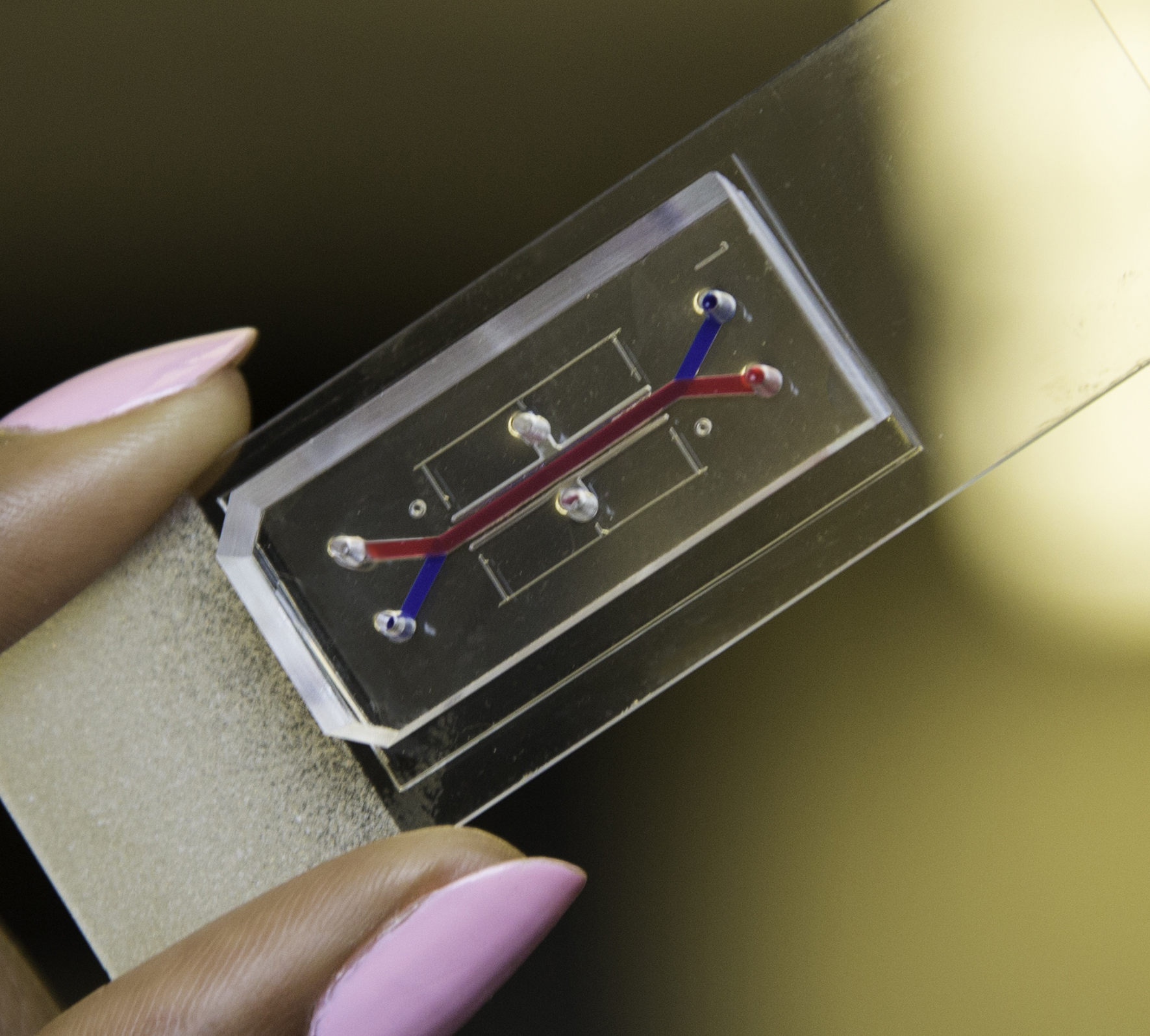 Samira Musah, Ph.D., Dean’s Postdoctoral Fellow at Harvard Medical School and an NRMN mentee, recently authored a story in Nature giving insights behind a recently-published paper on using certain stem-cell-derived human podocytes to reconstitute kidney function. The paper, also in Nature, was published by Musah’s research team at Dr. Don Ingber’s laboratory in the Wyss Institute at Harvard University.
Samira Musah, Ph.D., Dean’s Postdoctoral Fellow at Harvard Medical School and an NRMN mentee, recently authored a story in Nature giving insights behind a recently-published paper on using certain stem-cell-derived human podocytes to reconstitute kidney function. The paper, also in Nature, was published by Musah’s research team at Dr. Don Ingber’s laboratory in the Wyss Institute at Harvard University.
Both Don Ingber and George Church are mentioned in the story. With regards to mentoring, Musah adds that both Drs. Ingber and Church had been “absolutely fantastic” mentors. As described in the story, they gave her the independence and resources to pursue this work in a way that allowed her to leverage her experience in stem cell biology while learning and applying new and emerging technologies (organs-on-chips microphysiological systems and genome engineering) from their laboratories.
Says Musah, “Don always encourages his trainees to employ diverse skill sets in solving scientific problems and I think that our most recent publication highlights the power of multidisciplinary research when trying to address complex problems in developmental biology and medicine.
 One of the most powerful lessons I learned from George Church is not to be afraid of failure. In fact he encourages us to share failed experiments just as much as we like to share successful ones. He explains that the faster we fail, the sooner we get to the most exciting results.”
One of the most powerful lessons I learned from George Church is not to be afraid of failure. In fact he encourages us to share failed experiments just as much as we like to share successful ones. He explains that the faster we fail, the sooner we get to the most exciting results.”
Musah’s graduate advisor, Laura L. Kiessling (University of Wisconsin-Madison, now at MIT), strongly encouraged all of her trainees to go where their ideas take them and not be limited by where their training left them. With this in mind, she follows her passion to identify scientific problems that she hopes to solve.
Shown above, left: Samira holds the “organ-on-a-chip microfluidic device” developed by her team at the Harvard University Wyss Institute.
Musah also believes in the power of peer mentorship. Along with NRMN Executive Director Dr. Rafael E. Luna, Musah was a founding member of the group, Harvard Medical School Scholars in Translational and Academic Research (HMS STARs). The postdoc group facilitates peer mentorship of diverse scientists from various disciplines in basic and biomedical sciences. HMS STARs also provides enrichment activities to enhance the training experience of postdoctoral fellows through mentorship, career development, and networking opportunities. HMS STARs has and continues to collaborate with NRNM in support of these goals, which are shared by both organizations.
Together, says Musah, all of her mentors (formal and informal) inspire and challenge her to excel.